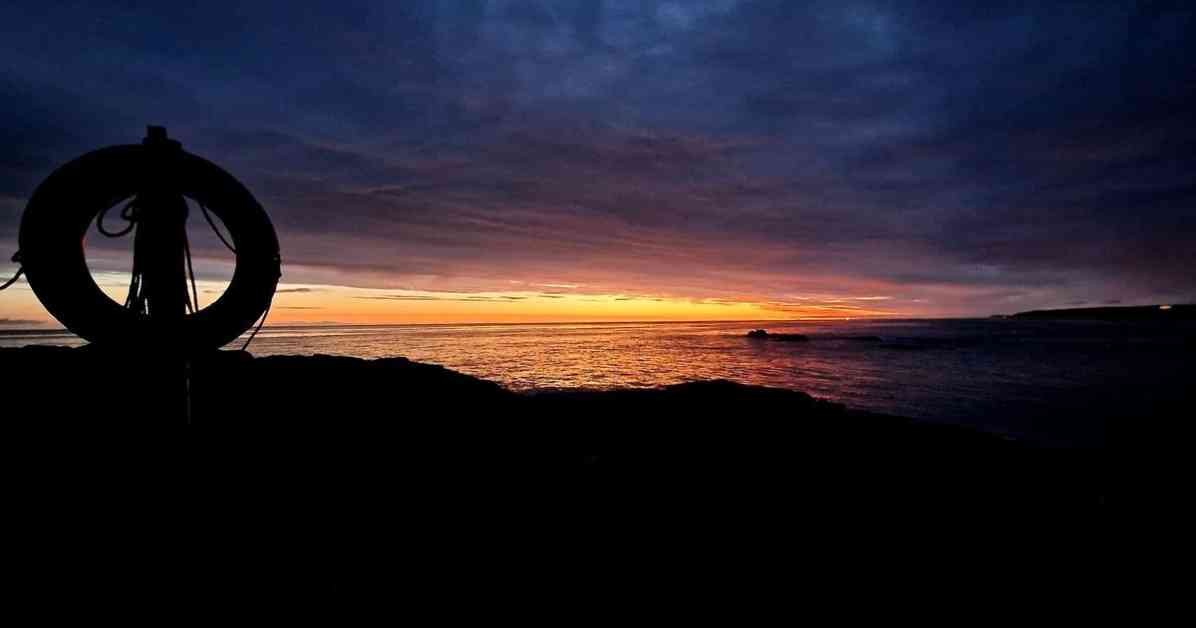Wildlife photographers in East Lothian can rejoice as the council has decided to reduce the overnight beach car park ban, allowing them to capture the beauty of dawn along the county’s coast. The decision comes after photographers advocated for the change, emphasizing the importance of early morning access to capture the interesting lights and wildlife that inhabit the area.
Councilors in East Lothian recently approved a permanent ban on parking along the county’s coast at night, with the exception of pre-booked designated motor home spaces. Initially, the ban was proposed to run from 10pm to 6am. However, in response to public feedback and requests from local photographers, the council has decided to extend the opening hours of the car parks. The new schedule will keep the car parks open until 11pm and allow visitors to return as early as 4am.
Provost John McMillan expressed his support for the change, noting that it was a direct response to the requests of local photographers who seek to capture the beauty of the early morning hours. By allowing access from 4am, photographers will have the opportunity to witness the dawn light and capture stunning images of the wildlife that thrives along the coast.
The decision to reduce the overnight beach car park ban comes in the wake of increased visitor numbers to East Lothian’s coast during the Covid-19 pandemic. The surge in visitors has led to additional patrols being deployed to monitor campers and enforce regulations on overnight stays. The council implemented the overnight ban as a measure to protect the area from potential damage caused by the influx of vehicles and visitors.
Countryside rangers have reported a concerning amount of human waste being found at popular beach sites, such as Yellowcraig, highlighting the need for increased measures to protect the environment. Council leader Norman Hampshire emphasized the council’s duty to balance the needs of visitors with the preservation of the coast line. While welcoming visitors, the council aims to find a harmonious balance that allows for access while safeguarding the natural beauty of the area.
In addition to the reduced overnight beach car park ban, the council has also approved a plan to investigate the possibility of introducing more motor home spaces along the coast. This initiative aims to provide designated areas for motor home users while ensuring that the environment is protected from potential harm.
Overall, the decision to reduce the overnight beach car park ban in East Lothian is a positive step towards accommodating the needs of wildlife photographers and visitors while preserving the natural beauty of the coastline. By striking a balance between access and conservation, the council is taking proactive measures to ensure the long-term sustainability of the area for both present and future generations.
Impact on Wildlife Photographers
Wildlife photographers in East Lothian have welcomed the decision to reduce the overnight beach car park ban, as it will allow them to access the coast during the early morning hours. For photographers, the dawn light offers a unique opportunity to capture stunning images of wildlife and landscapes in a peaceful and undisturbed setting. The extended opening hours of the car parks will enable photographers to set up their equipment and prepare for the perfect shot as the sun rises over the horizon.
The change in the car park hours reflects the council’s recognition of the importance of supporting local photographers and providing them with the necessary access to pursue their passion. By listening to the feedback and requests of photographers, the council has demonstrated a commitment to fostering a supportive environment for creative endeavors and wildlife conservation efforts.
Protecting the Environment
The decision to reduce the overnight beach car park ban is not only beneficial for photographers but also crucial for protecting the environment along East Lothian’s coast. The surge in visitor numbers during the Covid-19 pandemic has raised concerns about the impact of increased human activity on the delicate ecosystems and wildlife habitats in the area. By implementing measures to regulate overnight stays and limit parking, the council is taking proactive steps to safeguard the natural beauty of the coastline.
The presence of human waste at popular beach sites like Yellowcraig underscores the importance of enforcing regulations and promoting responsible visitor behavior. The council’s efforts to monitor campers and crack down on overnight stays are essential for maintaining the cleanliness and integrity of the coastal environment. By addressing these issues, the council is demonstrating a commitment to environmental stewardship and the preservation of natural resources for future generations.
Future Plans and Sustainability
In addition to the reduced overnight beach car park ban, the council’s plan to investigate the introduction of more motor home spaces reflects a forward-thinking approach to managing visitor access along the coast. By designating specific areas for motor home users, the council aims to provide a designated space for these visitors while minimizing the impact on the surrounding environment. This initiative aligns with the council’s commitment to finding a balance between accommodating visitors and protecting the coastal landscape.
Looking ahead, the council’s focus on sustainability and environmental conservation will be crucial in ensuring the long-term viability of East Lothian’s coast. By implementing measures to regulate visitor access, enforce restrictions on overnight stays, and promote responsible behavior, the council is taking proactive steps to preserve the natural beauty and biodiversity of the area. Through collaboration with stakeholders, including wildlife photographers and conservationists, the council is working towards a shared vision of a sustainable and thriving coastal environment.
In conclusion, the decision to reduce the overnight beach car park ban in East Lothian is a positive development that benefits wildlife photographers, visitors, and the environment. By listening to feedback, implementing changes, and prioritizing sustainability, the council is demonstrating a commitment to preserving the natural beauty and ecological integrity of the coast. As East Lothian continues to attract visitors and photographers seeking to experience the beauty of the coast, the council’s proactive measures will play a vital role in ensuring the long-term health and sustainability of the area for generations to come.













